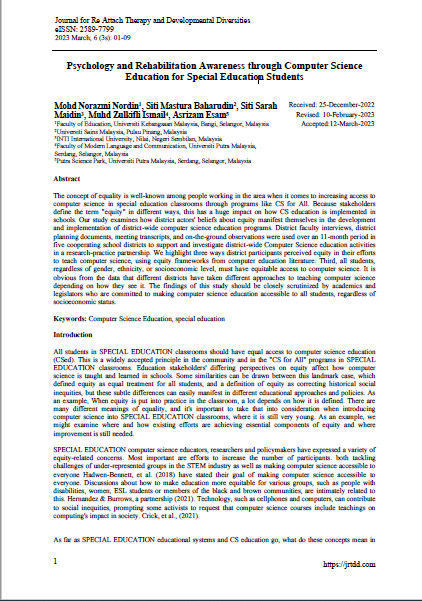Psychology and Rehabilitation Awareness through Computer Science Education for Special Education Students
Main Article Content
Abstract
The concept of equality is well-known among people working in the area when it comes to increasing access to computer science in special education classrooms through programs like CS for All. Because stakeholders define the term "equity" in different ways, this has a huge impact on how CS education is implemented in schools. Our study examines how district actors' beliefs about equity manifest themselves in the development and implementation of district-wide computer science education programs. District faculty interviews, district planning documents, meeting transcripts, and on-the-ground observations were used over an 11-month period in five cooperating school districts to support and investigate district-wide Computer Science education activities in a research-practice partnership. We highlight three ways district participants perceived equity in their efforts to teach computer science, using equity frameworks from computer education literature: Third, all students, regardless of gender, ethnicity, or socioeconomic level, must have equitable access to computer science. It is obvious from the data that different districts have taken different approaches to teaching computer science depending on how they see it. The findings of this study should be closely scrutinized by academics and legislators who are committed to making computer science education accessible to all students, regardless of socioeconomic status.

